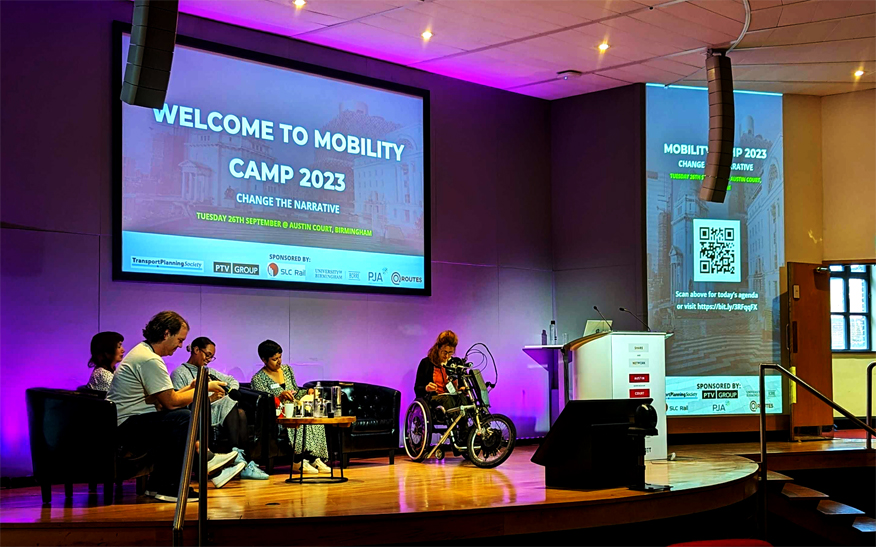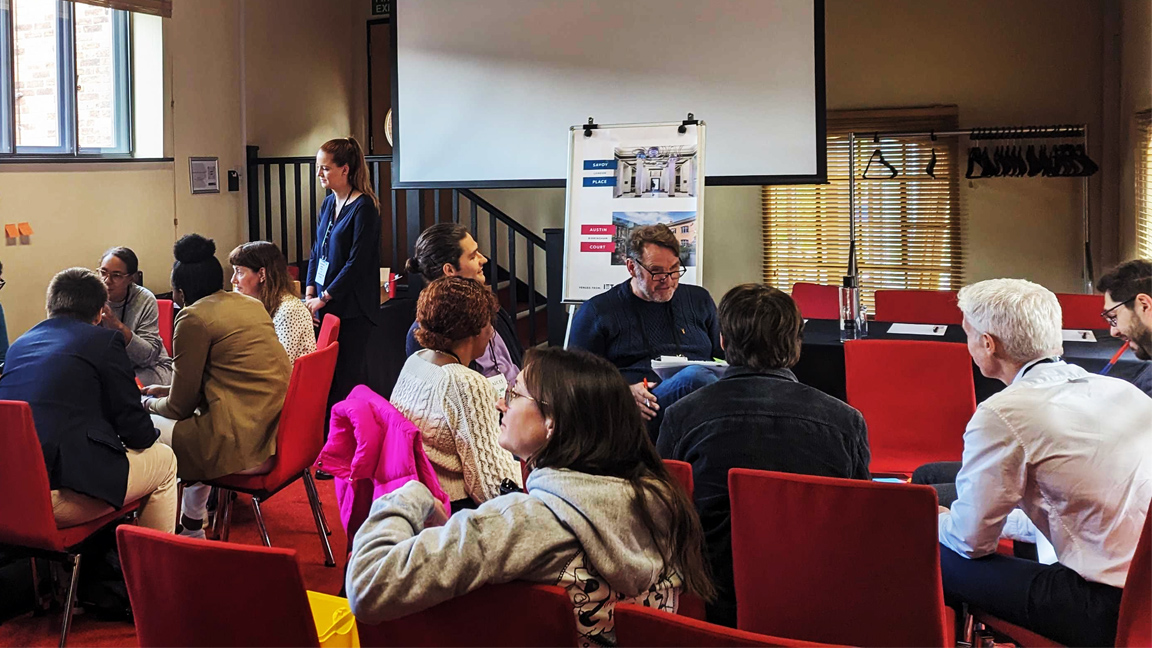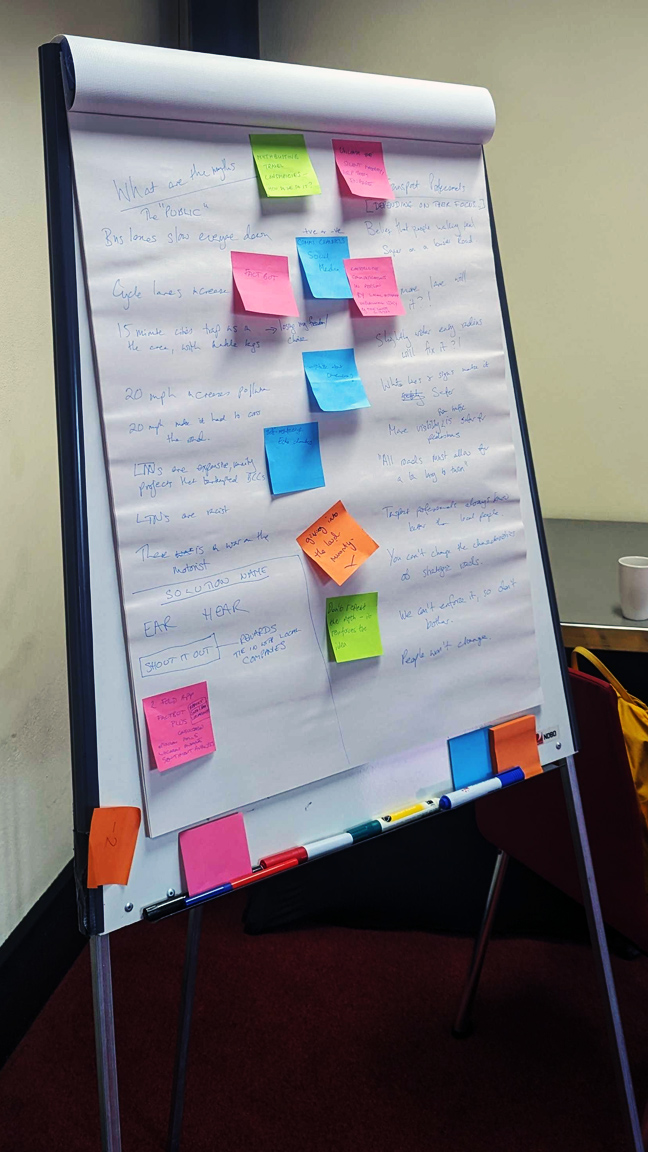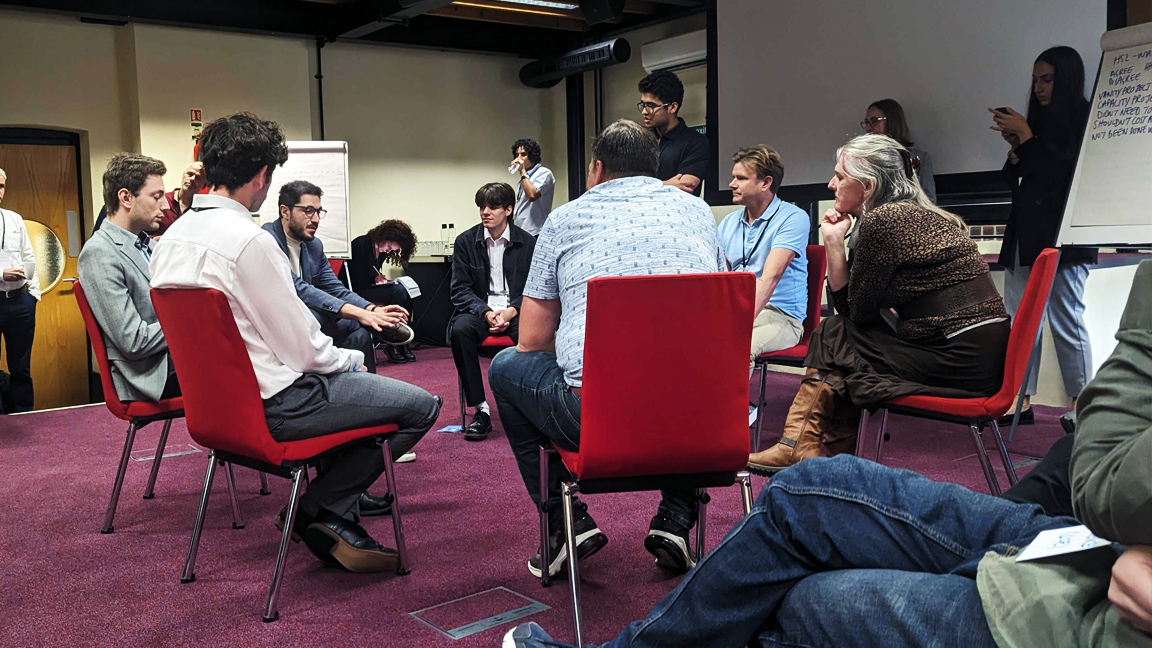
Mobility Camp, now in its sixth year, is an annual unconference that brings together transport planners, modellers, engineers, technologists, social activists, academics and others to discuss and develop solutions to the challenges facing the transportation sector.
As an unconference, there are no pre-planned sessions. Instead, attendees are invited to suggest and vote on the topics that they are most interested in discussing, with the aim of engendering a truly collaborative approach to problem-solving.
This year, Mobility Camp was held on September 26 in Birmingham, UK, with the theme “Change the narrative.” Podaris’ in-house transport planner Chloe Rogers attended. After refreshments and an introduction to the day's events, a panel featuring the following speakers was convened to discuss the day's themes:
Sonya Byers - Chief Executive for Women in Transport
Sandra Witzel - Women In Mobility and SkedGo
Georgia Yexley - Loud Mobility
Humera Sultan - Birmingham City Council (Public Health)
Pauline Johnston - Civic and Social
Isabelle Clement - Wheels for Wellbeing

A diverse selection of topics were discussed, including how best to respond to the needs of children. Ideas included: understanding journeys from the point of view of a child, in terms of wayfinding and making them more enjoyable, co-designing areas with children in order to ensure they are suitable and fun, and encouraging play in active travel. This was expounded on in a later session, in which it was proposed that fun routes to school could be created with features that were only accessible when using active or bus travel. Ideas included decorations, games, activities and treasure hunts, developed with input from children..
In terms of diversity and inclusion of underrepresented groups, there was discussion around the need to avoid grouping ethnicities that have different needs and backgrounds, and the importance of using inclusive language (e.g. ‘cycles’ and not ‘bicycles/bikes’).
On the subject of accessibility it was noted that where transport requires booking in advance (for example to secure a vehicle with wheelchair ramps/suitable seating), trips cannot be made spontaneously and public transport is therefore a less viable option. In fact, in the UK, those with disabilities take 38% fewer trips than those without.
Bus stops were also discussed as a prime location for communicating the benefits of using public transport in order to encourage current users to keep using buses, as well as something that could be rethought as a more enjoyable and useful part of a journey.
Attention was also given to the She's Electric campaign to encourage women to use e-bikes. As data from the UK Government's National Statistics for Walking and Cycling in 2021 shows, men make more than triple the number of cycle trips per year than women do.
The speakers concluded by presenting a number of challenges to the audience:
- How do we connect with people who don’t currently care?
- What can you do differently, each day to help support the cause?
- What individual actions can be made towards system change?
- Picture a world where people can move around without friction.
Creating the agenda

In keeping with the collaborative nature of the unconference, ideas for an agenda were sourced from attendees in the ‘ideation’ portion of the morning. These were pooled and voted on with the topics “Personal car use - a choice, not a necessity” and “Is economy king?” receiving the highest number of votes.
A total of nine streams ran throughout the day, with Chloe attending the sessions on the above topics as well as a solution-focused session on “Sustainable and Safe Neighbourhood Design”.
Within this session, Chloe's working group aimed to solve the issue of conspiracy theories relating to transport planning initiatives and started by exploring some of the most common myths and conspiracies, and how these spread. The idea of using AI bots to fact check conspiracy theories was floated although some noted the tendency of large language models to hallucinate factually inaccurate information, so this idea was soon discarded.
The group eventually aligned on the idea of an app focused on both pre and post implementation communication.When passing through an area which is pre or post change, the user would be asked questions about the area (how they feel there, whether they have any safety concerns, etc). The app would collect this feedback to determine how the changes actually impact opinions of the area. Its use could be incentivised by offering vouchers to use at local small businesses.
In the ‘Economy is King’ session there was much debate around the value of HS2 with opinions varying from it being a well intentioned necessary phase in the evolution of high speed rail in the UK to it being a vanity project. An interesting aspect of the debate focused on the perceived influence that different stakeholders have on transport projects. While some claim to have almost no influence, others, who thought their influence was greater nonetheless said they struggled to actually ‘get shovels in the ground and make things happen’.

The final session attended by Chloe, “Personal care use - a choice not a necessity” featured a talk from Birmingham City Council on their plans for meeting net zero, and offered some challenges for which the group were invited to find solutions. These were addressed in the following ways:
-
Bridging gaps - which involved identifying key stakeholders and identifying appropriate solutions for different demographics.
-
Getting the shovel ready for when funding becomes available by facilitating early engagement with local areas and understanding priorities well in advance so that funding can go to the right places.
-
Delivering measures in advance to improve public perception (for example putting chargers in place and putting new transport routes in place before congestion charges) - this should involve a focus on positive messaging, providing the information necessary for informed decision-making and showing the real cost of using a car/how that compares to other modes
As an exercise in collective problem solving, Mobility Camp 2023 was once again a refreshing alternative to traditional conferences, and a testament to the power of collaboration. Roll on Mobility Camp ‘24!